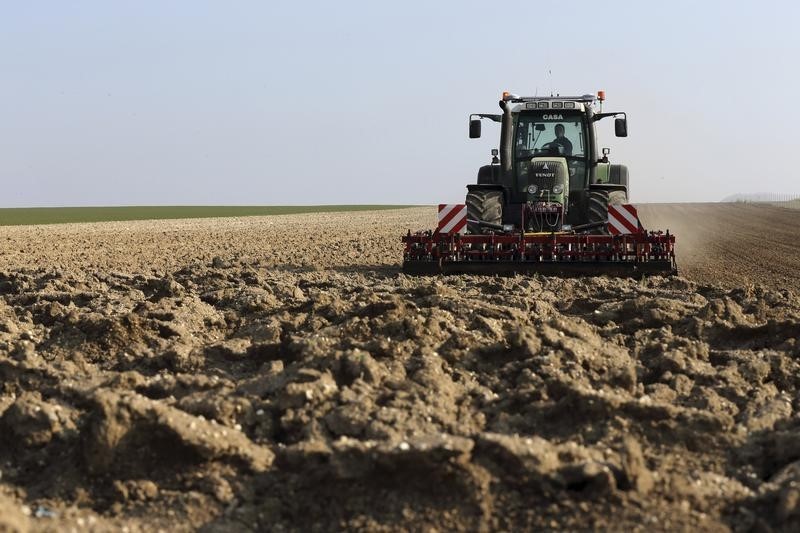(Bloomberg) -- The biggest agricultural-commodity traders are getting squeezed.
With U.S. grain exports expected to fall more than 20% in the 2019 crop year, Archer-Daniels-Midland Co., Bunge Ltd. and Cargill Inc. are making less money buying and selling crops. That’s according to S&P Global Ratings, which estimates trading and merchandising margins for the firms have fallen by more than 10% so far this year.
The narrowing of margins comes as the trade war between the U.S. and China cuts demand for America crops. In addition, profits from processing soybeans -- which helped boost earnings last year -- have declined due to a recovery in South American crops and a slowdown in demand for soybean meal in Asia, where a deadly disease is cutting demand for the key ingredient in pig feed.
“Most rated companies have a large global sourcing footprint, and higher export volumes in other regions should offset weaker U.S. exports,” Chris Johnson, an analyst at the ratings company, said in a report. “But earnings will still fall short of last year given the crush-margin outlook.”
Investors will soon get some clarity on how much trade disputes and lower crush margins have affected the companies. Bunge, the ‘B’ in the storied quartet of agricultural commodity traders collectively known as ABCD, reports earnings on Wednesday. Quarterly results for ADM, the ‘A’, come out on Thursday.
ADM’s exposure to the U.S. ethanol market, which has had negative margins for much of 2019, “remains a drag,” while oilseed crush margins “face a very difficult comparison to last year’s strong earnings,” according to the report. Both ADM and Bunge have negative exposure to U.S. origination and trading.
Bunge said it wasn’t in a position to comment ahead of earnings, while ADM said the company didn’t have a comment. Cargill said it doesn’t publicly disclose margins.
Protein Boost
The outlook for agricultural commodity traders is set to improve next year, as the spread of African swine fever means other countries will have to produce more meat to supply China. That will, in turn, boost demand for the soy meal that ADM, Bunge and closely held Cargill produce in the U.S., South America and Europe.
“We believe such production should lead to higher meal demand for feed and is only the tip of the iceberg,” Johnson said. “That’s because China’s domestic pork supplies have yet to fall off sharply as increased pork slaughter has built up cold storage supplies in China, providing ample supply for the prepared food industry to process in 2019.”
“By most estimates, cold storage inventories have shot up to five months of industry production capacity, suggesting much higher livestock demand in 2020 once those inventories are drawn down.”
Many traders have also sought to diversify their businesses in recent years. Cargill has focused on expanding its beef business, while ADM has bet on animal nutrition and ingredients. Bunge, which is in the processes of restructuring its business, has so far kept a focus on oilseeds processing.
Bolt-on Deals
Disruptions in trade could mean more divestment ahead for the crop traders even if antitrust concerns and industry disruptions don’t point to “a natural consolidator,” according to the report.
“We expect companies to accelerate the pace of transactions to shed or spin off under-performing assets or to partner and share resources rather than go all in on new investments,” Johnson said, citing Bunge’s joint venture with BP (LON:BP) Plc in Brazil and ADM’s plan to spin of its dry ethanol mills.
Mergers and acquisitions probably won’t accelerate much as growth comes largely from smaller capital investments and bolt-on deals from smaller segments such as alternative proteins and new feed supplements, according to the report.
ADM announced it reached an agreement with Brazilian beef supplier Marfrig Global Foods SA to make oilseed-based burgers, while an investment in Beyond Meat (NASDAQ:BYND) Inc. boosted Bunge’s earnings last quarter.
(Updates with ADM, Cargill responses in seventh paragraph.)
